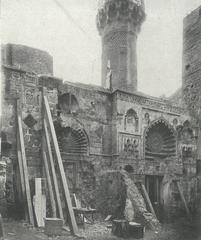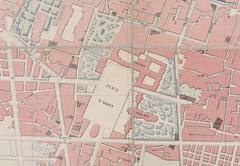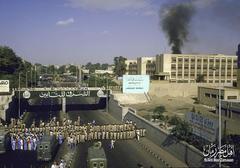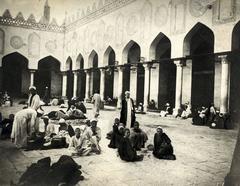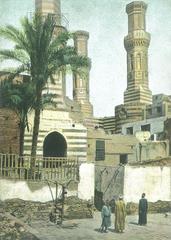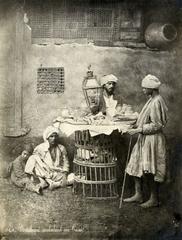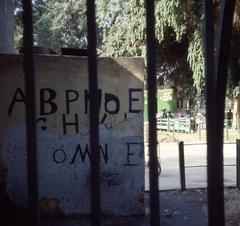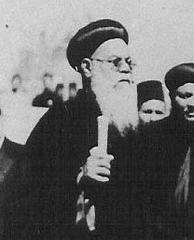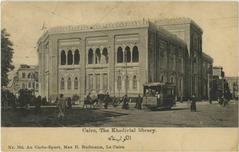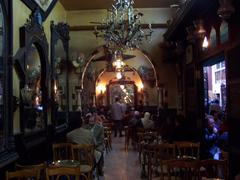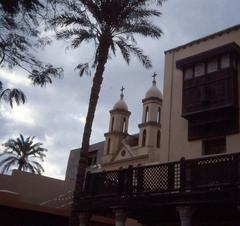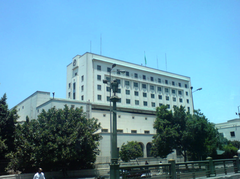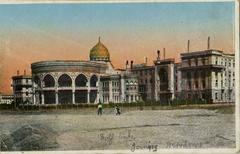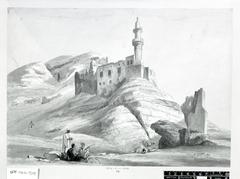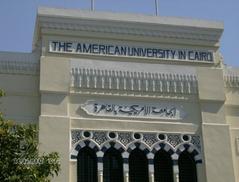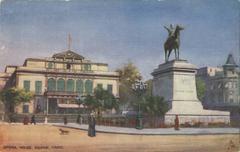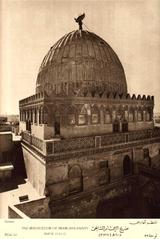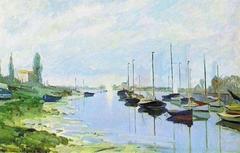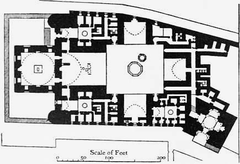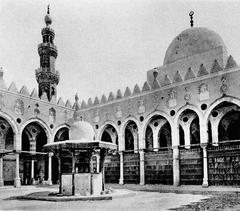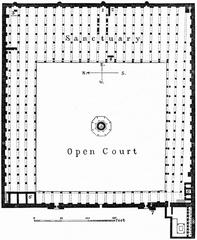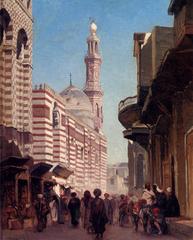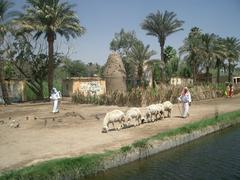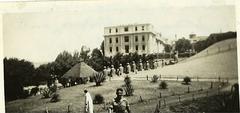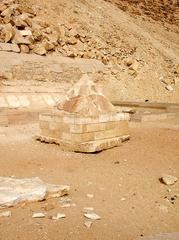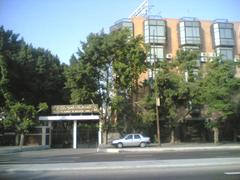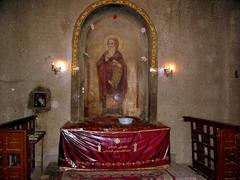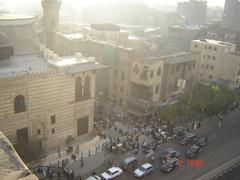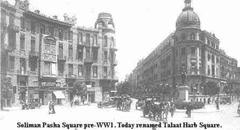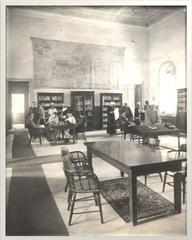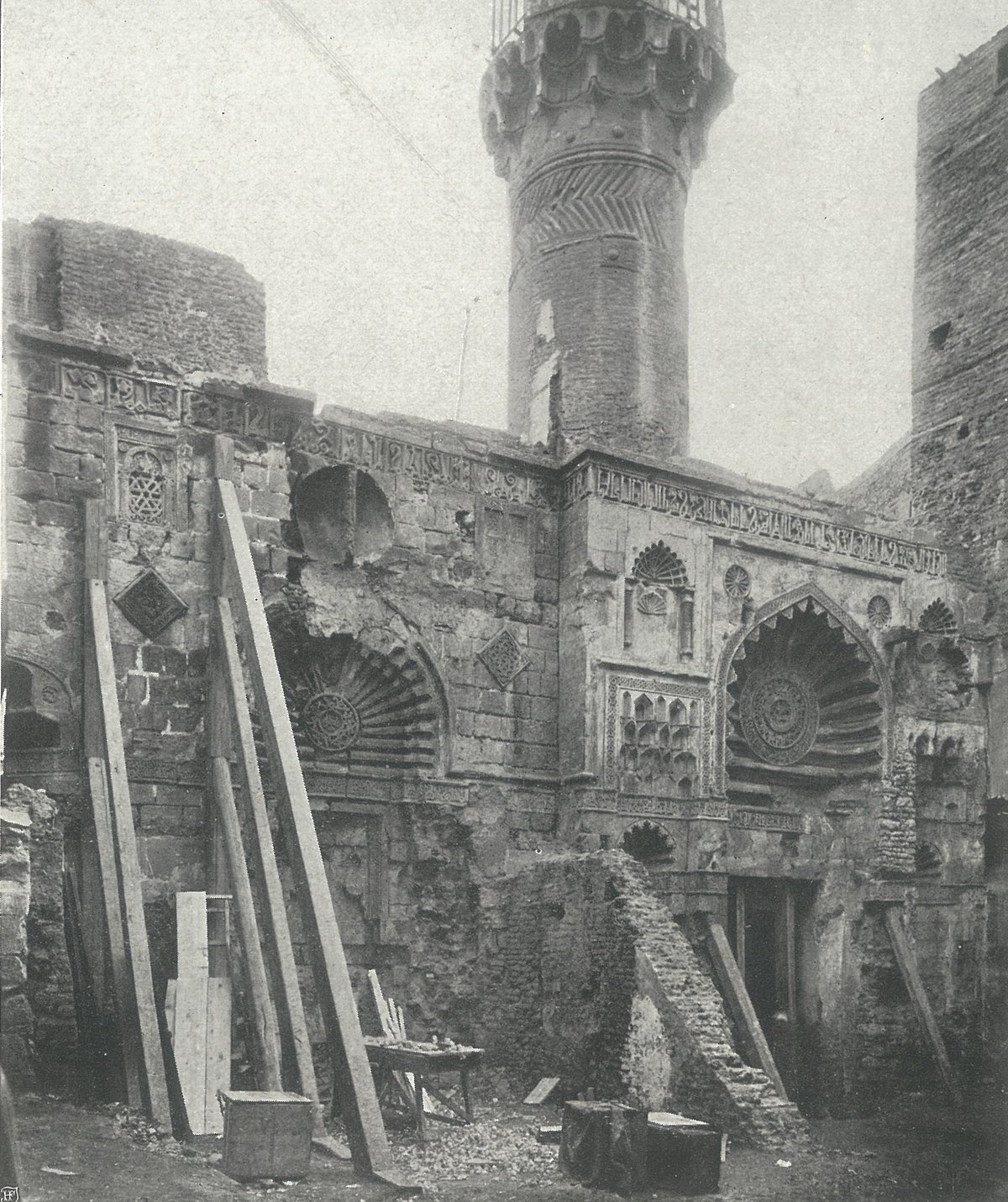
Al Aqmar Mosque Visiting Hours, Tickets, and Historical Sites in Al Salam
Date: 23/07/2024
Introduction
The Al-Aqmar Mosque, located in the Al Salam district of Cairo, Egypt, stands as an enduring testament to the architectural brilliance and cultural richness of the Fatimid era. Constructed in 1125 CE by the Fatimid Caliph Al-Mustansir Billah, the mosque is renowned for its unique architectural features and historical significance. Its name, ‘Al-Aqmar,’ meaning ‘The Moonlit,’ aptly describes its luminous facade that glows under the moonlight. This mosque is not only an exquisite example of Fatimid architecture but also a symbol of the political and religious climate of its time. As one of Cairo’s oldest mosques, Al-Aqmar has witnessed numerous historical events and has undergone several restorations to preserve its original splendor. Today, it serves both as a place of worship and a significant tourist attraction, drawing visitors from around the world who are eager to explore its intricate stone carvings, historical context, and cultural importance. This comprehensive guide aims to provide detailed information on the history, architectural significance, and visitor tips for those planning to explore this iconic monument.
Table of Contents
- [History of جامع الأقمر (Al-Aqmar Mosque)](#history-of-جامع-الأقمر-al-aqmar-mosquehistory-of-جامع-الأقمر-al-aqmar-mosque)
- [Foundation and Early History](#foundation-and-early-historyfoundation-and-early-history)
- [Architectural Significance](#architectural-significancearchitectural-significance)
- [Historical Context](#historical-contexthistorical-context)
- [Renovations and Restorations](#renovations-and-restorationsrenovations-and-restorations)
- [Cultural and Religious Significance](#cultural-and-religious-significancecultural-and-religious-significance)
- [Modern-Day Relevance](#modern-day-relevancemodern-day-relevance)
- [Tourist Information](#tourist-informationtourist-information)
- [Preservation Efforts](#preservation-effortspreservation-efforts)
- [Nearby Attractions](#nearby-attractionsnearby-attractions)
- [FAQ](#faqfaq)
- [Essential Visitor Tips for Al-Aqmar Mosque](#essential-visitor-tips-for-al-aqmar-mosqueessential-visitor-tips-for-al-aqmar-mosque)
- [Best Time to Visit](#best-time-to-visitbest-time-to-visit)
- [Dress Code and Etiquette](#dress-code-and-etiquettedress-code-and-etiquette)
- [Photography](#photographyphotography)
- [Guided Tours](#guided-toursguided-tours)
- [Accessibility](#accessibilityaccessibility)
- [Safety and Security](#safety-and-securitysafety-and-security)
- [Cultural Sensitivity](#cultural-sensitivitycultural-sensitivity)
- [Language](#languagelanguage)
- [Refreshments and Facilities](#refreshments-and-facilitiesrefreshments-and-facilities)
- [Souvenirs and Shopping](#souvenirs-and-shoppingsouvenirs-and-shopping)
- [Environmental Considerations](#environmental-considerationsenvironmental-considerations)
- [Conclusion](#conclusionconclusion)
- [References](#referencesreferences)
History of جامع الأقمر (Al-Aqmar Mosque)
Foundation and Early History
The Al-Aqmar Mosque, located in the Al Salam district of Cairo, Egypt, is one of the oldest mosques in the city, dating back to the Fatimid era. It was commissioned by the Fatimid Caliph Al-Mustansir Billah and completed in 1125 CE. The mosque’s name, “Al-Aqmar,” translates to “The Moonlit,” reflecting its luminous facade that glows under the moonlight. This mosque is a significant example of Fatimid architecture and is renowned for its intricate stone carvings and innovative design elements.
Architectural Significance
The Al-Aqmar Mosque is particularly noted for its architectural innovations. It was the first mosque in Cairo to align its facade with the street while maintaining the correct qibla orientation for prayer. This was achieved through a unique architectural solution where the facade is slightly skewed to align with the street, while the interior prayer hall is oriented towards Mecca. This design set a precedent for future mosque constructions in Cairo.
The mosque’s facade is adorned with intricate stone carvings, including geometric patterns, floral motifs, and inscriptions in Kufic script. These decorations are not merely ornamental but also carry significant symbolic meanings. For instance, the central medallion on the facade features a depiction of the sun, symbolizing the divine light of Islam. The use of stone for the facade was also innovative at the time, as most buildings in Cairo were constructed using brick.
Historical Context
The construction of the Al-Aqmar Mosque occurred during a period of political and social upheaval in Egypt. The Fatimid Caliphate, which ruled from 909 to 1171 CE, was facing internal strife and external threats. Despite these challenges, the Fatimids were known for their patronage of the arts and architecture. The Al-Aqmar Mosque was part of a broader effort to assert Fatimid authority and promote their Ismaili Shi’a beliefs.
The mosque’s location in the heart of Cairo’s old city, near the Fatimid royal palace, underscores its importance. It served not only as a place of worship but also as a symbol of Fatimid power and religious legitimacy. The mosque’s construction was likely intended to reinforce the caliph’s authority and provide a focal point for the Fatimid community in Cairo.
Renovations and Restorations
Over the centuries, the Al-Aqmar Mosque has undergone several renovations and restorations. One of the most significant restorations occurred in the 20th century under the auspices of the Comité de Conservation des Monuments de l’Art Arabe, a French-led organization dedicated to preserving Egypt’s Islamic heritage. This restoration aimed to stabilize the structure and restore its original architectural features.
In recent years, the mosque has continued to receive attention from preservationists and historians. Efforts have been made to document its architectural details and historical significance. These initiatives are crucial for ensuring that the mosque remains a vibrant part of Cairo’s cultural heritage.
Cultural and Religious Significance
The Al-Aqmar Mosque holds a special place in the cultural and religious landscape of Cairo. It is one of the few surviving examples of Fatimid architecture in the city and provides valuable insights into the artistic and architectural achievements of the Fatimid period. The mosque’s intricate decorations and innovative design elements reflect the Fatimids’ sophisticated aesthetic sensibilities and their commitment to promoting their religious beliefs through architecture.
The mosque also serves as a reminder of Cairo’s rich and diverse history. It stands as a testament to the city’s role as a center of Islamic learning and culture during the medieval period. For visitors, the Al-Aqmar Mosque offers a unique opportunity to explore this history and appreciate the architectural and artistic achievements of the Fatimid era.
Modern-Day Relevance
Tourist Information
Today, the Al-Aqmar Mosque continues to be an important site for both worship and tourism. It attracts visitors from around the world who come to admire its architectural beauty and learn about its historical significance. The mosque’s location in the bustling Al Salam district makes it easily accessible to tourists exploring Cairo’s historic sites.
Visiting Hours - The mosque is generally open to visitors from 9 AM to 5 PM, but it’s advisable to check in advance as hours may vary.
Tickets - There is no entrance fee for the Al-Aqmar Mosque, making it an accessible site for all visitors.
Travel Tips - Comfortable footwear is recommended due to the historical cobblestone streets. Modest attire is also advised in respect of the religious setting.
Preservation Efforts
Efforts to preserve and promote the Al-Aqmar Mosque are ongoing. Organizations such as the Aga Khan Trust for Culture have been involved in initiatives to document and restore the mosque. These efforts are crucial for ensuring that future generations can continue to appreciate this remarkable example of Fatimid architecture.
Nearby Attractions
While visiting the Al-Aqmar Mosque, consider exploring nearby historical sites such as the Al-Hakim Mosque and the Al-Azhar Mosque. The area is rich with cultural landmarks that offer a deeper understanding of Cairo’s Islamic heritage.
FAQ
What are the Al-Aqmar Mosque visiting hours?
The mosque is generally open from 9 AM to 5 PM, but it’s best to check in advance.
How do I get tickets to the Al-Aqmar Mosque?
There is no entrance fee for the Al-Aqmar Mosque.
Are there guided tours available?
Guided tours are available; it’s recommended to book in advance through local tour operators.
Essential Visitor Tips for Al-Aqmar Mosque
Best Time to Visit
The optimal time to visit Al-Aqmar Mosque is during the cooler months from October to April. During these months, temperatures are more comfortable, ranging from 15°C to 25°C (59°F to 77°F), making it ideal for exploring the mosque and the surrounding area. Avoid visiting during the peak summer months (June to August) when temperatures can soar above 40°C (104°F), which can be quite uncomfortable for sightseeing.
Dress Code and Etiquette
When visiting Al-Aqmar Mosque, it is important to dress modestly out of respect for the religious and cultural significance of the site. Men should wear long pants and shirts with sleeves, while women should cover their heads with a scarf and wear long skirts or pants and long-sleeved tops. Shoes must be removed before entering the mosque, so wearing easily removable footwear is advisable.
Photography
Photography is generally allowed inside Al-Aqmar Mosque, but it is always best to ask for permission before taking pictures, especially if there are worshippers present. Flash photography is usually discouraged as it can be disruptive. For those interested in capturing the intricate details of the mosque’s architecture, bringing a camera with a good zoom lens is recommended.
Guided Tours
To fully appreciate the historical and architectural significance of Al-Aqmar Mosque, consider joining a guided tour. Knowledgeable guides can provide in-depth information about the mosque’s history, its unique architectural features, and its role in the community. Tours are often available in multiple languages, including English, Arabic, and French. Check with local tour operators or the mosque’s administration for available tour schedules and fees.
Accessibility
Al-Aqmar Mosque is located in the bustling district of Al Salam, which can be accessed by various modes of transportation. The nearest metro station is Al-Azhar, which is about a 10-minute walk from the mosque. Taxis and ride-sharing services are also readily available. For those driving, parking can be challenging due to the narrow streets and limited parking spaces in the area. It is advisable to use public transportation or hire a local guide who can navigate the area more efficiently.
Safety and Security
Al-Aqmar Mosque is generally safe for tourists, but it is always wise to stay vigilant and be aware of your surroundings. Keep your belongings secure and avoid displaying valuable items. It is also recommended to visit during daylight hours and to stay within well-populated areas. If you are unfamiliar with the area, consider hiring a local guide or joining a group tour for added security.
Cultural Sensitivity
When visiting Al-Aqmar Mosque, it is important to be respectful of the local customs and traditions. Refrain from loud conversations and disruptive behavior, especially during prayer times. If you are unsure about any cultural practices, do not hesitate to ask for guidance from the mosque staff or your tour guide.
Language
While Arabic is the primary language spoken in Egypt, many people in the tourism industry, including guides and vendors, speak English. Learning a few basic Arabic phrases can enhance your experience and help you connect with the locals. Common phrases such as “As-salamu alaykum” (peace be upon you) and “Shukran” (thank you) are always appreciated.
Refreshments and Facilities
There are limited facilities within Al-Aqmar Mosque itself, so it is advisable to carry a bottle of water and some light snacks, especially if you plan to spend an extended period exploring the area. There are several cafes and restaurants nearby where you can enjoy traditional Egyptian cuisine. Public restrooms may not always be readily available, so plan accordingly.
Souvenirs and Shopping
For those interested in purchasing souvenirs, there are several shops and stalls near Al-Aqmar Mosque offering a variety of items, including Islamic art, calligraphy, and traditional crafts. Bargaining is a common practice in Egyptian markets, so do not hesitate to negotiate the price to get the best deal.
Environmental Considerations
As a responsible tourist, it is important to minimize your environmental impact. Dispose of any litter properly and avoid touching or damaging the historical structures. Respect the natural and built environment to help preserve the site for future generations.
Conclusion
In conclusion, the Al-Aqmar Mosque is a multifaceted landmark that holds immense historical, religious, architectural, and cultural significance. From its innovative facade that aligns with the street while maintaining the qibla orientation to its intricate stone carvings and Kufic inscriptions, every aspect of this mosque reflects the sophistication and artistic prowess of the Fatimid era. Despite the political and social upheavals during its construction, the mosque has stood the test of time, serving as a focal point for the Fatimid community and a symbol of their religious and political authority. Today, the Al-Aqmar Mosque continues to be a vibrant part of Cairo’s cultural heritage, attracting both worshippers and tourists. Preservation efforts by organizations like the Aga Khan Trust for Culture ensure that this architectural gem remains accessible for future generations to appreciate. Whether you are a history enthusiast, an architecture aficionado, or a casual traveler, a visit to the Al-Aqmar Mosque offers a unique opportunity to delve into the rich tapestry of Cairo’s Islamic heritage.
References
- Title, 2023, Author Aga Khan Trust for Culture
